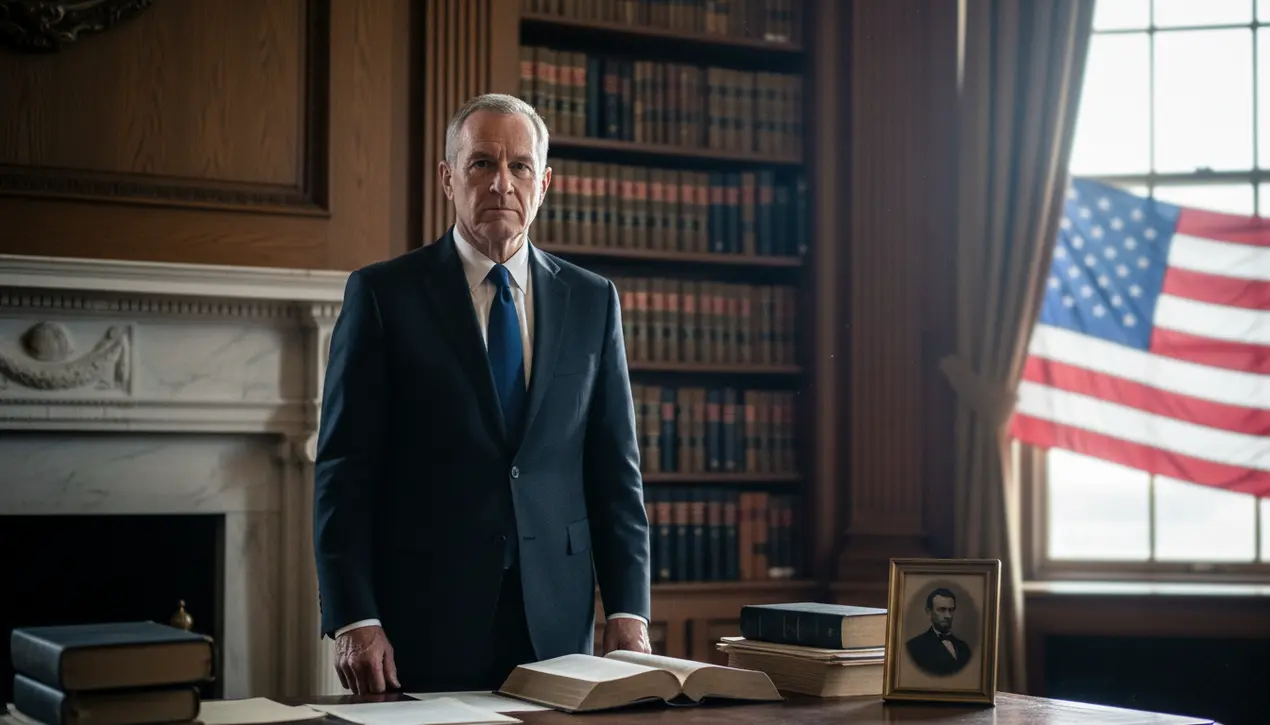
Politicsconflict & defenseMilitary Operations
Sen. Mark Kelly faces military investigation after clashing with Trump.
RO
Robert Hayes
1 day ago7 min read
The Pentagon's announcement of a formal military investigation into Democratic Senator Mark Kelly of Arizona represents a seismic escalation in the ongoing political warfare between the Biden administration's successor and legislative critics, evoking historical precedents where the separation of powers has been tested to its limits. As a retired naval captain and former NASA astronaut, Kelly finds himself in the unusual position of being subject to military jurisdiction while serving in the nation's highest legislative body, a constitutional gray area that legal scholars immediately began dissecting with vigorous intensity.The investigation stems from a video circulated last week featuring Kelly alongside five other Democratic lawmakers—Senator Elissa Slotkin of Michigan and Representatives Jason Crow of Colorado, Chris Deluzio of Pennsylvania, Maggie Goodlander of New Hampshire, and Chrissy Houlahan of Pennsylvania—in which they explicitly urged military service members to exercise judgment in refusing unlawful orders, directly challenging the administration's narrative of unquestioning chain-of-command obedience. This confrontation mirrors historical tensions between civilian leadership and military ethics, reminiscent of the Truman-MacArthur clashes during the Korean War, though with the unprecedented element of a sitting president demanding the arrest and trial of elected officials through social media platforms.President Trump's response, characterizing the Democrats' actions as 'SEDITIOUS BEHAVIOR, punishable by DEATH,' followed by his suggestion that the Defense Department was already investigating the lawmakers, creates the perception of a coordinated political retaliation that blurs the lines between legitimate oversight and executive intimidation. Defense Secretary Pete Hegseth's subsequent characterization of the video as 'despicable, reckless, and false' further institutionalized the administration's position, while the Pentagon's citation of federal law prohibiting the undermining of military discipline—carrying penalties up to ten years imprisonment—lends legal weight to what many observers perceive as a fundamentally political confrontation.The core legal question revolves around the Uniform Code of Military Justice's provisions regarding obedience to lawful orders versus the Nuremberg Principles' established precedent that military personnel bear responsibility for following manifestly illegal commands, creating a tension that constitutional experts argue has never been tested in such overtly political circumstances. Senator Kelly's defiant response on social media platform X, stating 'Your continued threats will not intimidate me or keep me from doing my job, which includes oversight of the executive branch,' demonstrates the hardening of positions on both sides, while Senate Minority Leader Chuck Schumer's characterization of Trump as unprecedented in encouraging political violence underscores the Democratic framing of this as a fundamental threat to democratic norms.The provision of special Capitol Police protection for Kelly and Slotkin indicates genuine concern for physical safety amid escalating rhetoric, recalling previous episodes of political violence that have shaken the nation's capital in recent years. White House Press Secretary Karoline Leavitt's attempted de-escalation, claiming Trump's social media posts weren't intended as threats, stands in stark contrast to the president's own words and the practical consequences now unfolding through the Pentagon's investigation.This confrontation represents more than a typical political dispute—it tests the very foundations of civilian control of the military, the independence of Congress, and the boundaries of protected political speech during a period of intense polarization. The outcome could establish dangerous precedents regarding the weaponization of military justice against political opponents or alternatively, if the investigation proceeds without White House influence, demonstrate the resilience of institutional independence even under extreme political pressure. As legal teams prepare for what many anticipate will become a landmark constitutional case, the nation watches a drama unfolding that touches upon the most basic questions about the balance of powers and the protection of democratic dissent in an era of increasing executive assertiveness.
#Pentagon investigation
#Mark Kelly
#Trump
#military discipline
#unlawful orders
#political clash
#featured
Stay Informed. Act Smarter.
Get weekly highlights, major headlines, and expert insights — then put your knowledge to work in our live prediction markets.
Comments
Loading comments...
© 2025 Outpoll Service LTD. All rights reserved.